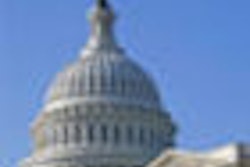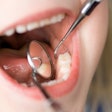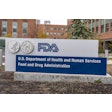
In their first draft of legislation to overhaul the U.S. healthcare system, Democrats in the House of Representatives propose extending dental coverage to all children nationwide, echoing a similar proposal from the Senate.
In the House bill, employers who don't offer health insurance and individuals who don't buy the insurance would pay fines. Insurance companies would have to accept all applicants who could pay. People who can't afford the insurance would get government subsidies. And the bill spells out a minimum benefits package that insurers would have to offer, including dental benefits for children.
“We remain adamantly opposed to ... alternative dental healthcare providers.”
— Academy of General Dentistry
In contrast to the Senate bill -- written by Democrats on the Committee for Health, Education, Labor, and Pensions (HELP) -- the House version would set up a new public insurance program, which would apparently also include children's dental benefits, to compete with private insurers.
The House bill also provides $200 million a year to educate dentists and dental hygienists over the next 14 years, with special emphasis on programs aimed at underserved populations.
The Senate HELP bill has similar provisions. But the House version, written by Democrats from three committees, leaves out most of the other oral health provisions in the HELP bill, such as projects to experiment with midlevel providers and collect data on oral diseases. It does call for more study of healthcare "workforce" issues.
Neither bill identifies a source of money to pay for all these programs.
Lobbyists for oral health organizations are still analyzing the implications of the House bill, which was released June 19. But in an initial reaction, William Prentice, director of the ADA's Washington, DC, office, was less than enthusiastic.
"While we are still poring over the 800+ page draft," he wrote in an e-mail to DrBicuspid.com, "I am disappointed that it does not appear to address our concerns about Medicaid. That being said, we are very early in the process, and I expect many changes in the coming months."
Among the ADA's top priorities for healthcare reform is a mandatory dental benefit for adults. Currently, states must include dental benefits for children in Medicaid, but many have opted not to provide them for adults -- and others are planning to cancel this benefit because of declining revenues. The ADA would also like to increase the federal match to states that make the program more attractive to dentists, "such as establishing market-based fees and addressing administrative barriers."
Neither the House Democrats nor the Senate HELP Committee Democrats have addressed this issue, although both bills raise the income level below which patients qualify for Medicaid. But both bills are expected to change as they go through the process of debate, amendment, and reconciliation. Also, Democrats on the Senate Committee on Finance are working with Republicans on yet another version that they hope will have bipartisan support.
That bill is expected some time soon after the July 4 recess, and Congressional leaders say they want to deliver a bill to President Barack Obama by August.
That gives oral health professionals time to make their preferences known. Already the Academy of General Dentistry has gone on record against a provision in the Senate bill that would fund pilot programs for midlevel providers. "We remain adamantly opposed to the new demonstration program to establish training programs to train or employ alternative dental healthcare providers," the organization states on its Web site.
Copyright © 2009 DrBicuspid.com



















